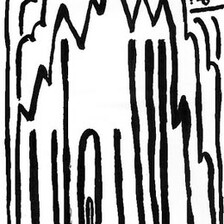The Electronic Intifada 19 August 2003

(UNRWA)
First there are arguments that not only deny the implementation of the right of return, but ones that do not recognize it. I will address both, focusing on the major ones that have been offered. Second, we should remind ourselves of what the right of return means. First, it is an individual right, possessed by every single Palestinian refugee, and not by the refugees as a group.
Second, it means that each refugee has the option to return to where he or she came from. It does not mean that the refugee must return. Each refugee might instead settle for another form of compensation. To claim that the refugees must return or, worse, to force them to, is to misconstrue the nature of the right of return. Third, only the refugees themselves, acting individually, can give up their right. Moreover, to give up their right does not mean that they have opted for monetary compensation. It means that they have given up claiming the option to be allowed to return or given adequate compensation. The right entails the option. To give up the right is to give up the option, not one fork in the option.
Arguments that deny the recognition of the right of return typically take the form of claiming that such a right does not exist. But they could do so for two general reasons. First, that the right never existed to begin with, and, second, that while the right did exist, it was given up and so no longer exists. The most famous argument given in support of the first reason is that the Palestinian refugees voluntarily left at the request of Arab governments. The idea is that because the Palestinians willingly consented to leave, they have abandoned their homes and villages. But since abandonment implies giving up on their property and lives in Palestine, then they do not have the right to return. This has been a mantra of Israeli apologists. The usual response to this argument is that it is based on false historical claims: that there were no calls for the Palestinians to leave, and, indeed, that such calls would not make sense from a political, ideological, economic, and military points of view.
While the above response is entirely correct, it fails to address the very core of the anti-right of return argument. Let us, for the sake of the argument, assume that there were such calls for the Palestinians to leave and that these were heeded. This would not show that the Palestinian refugees have no right of return. I am in my house, and for some reason it catches on fire. Firefighters call out for me, asking me to leave until they can extinguish the fire. I do leave. Who in his right mind would say that I have abandoned my house? Who would claim that I have given up my right to return to it? In leaving to save my life and to allow the firefighters to extinguish the flames, I certainly have not, and no right-minded person would claim that I have, given up my right to return. So even if the Palestinians did leave voluntarily, this does not entail that they have given up on their right to return or that they have no such right. What a nightmare of a world it would be if every morning when we leave our houses to go to work we effectively give up our rights to return to them!
The most famous instance of the second reason as to why the right of return does not exist, namely, that it did but it no longer does, is that of the “exchange of populations.” Roughly, it claims that since there were Jewish refugees from Arab countries who went to Israel, and since there were Palestinian refugees from Palestine who went to different Arab countries, then any right of return of the latter no longer exists. It might have existed at some point, but it no longer does because of the exchange of populations. This, however, is a mind-fogging argument. Setting aside the question of how exactly Jewish Arabs left their original countries, the fact remains that even though there are Palestinian refugees, there are no longer Jewish refugees. This is mainly because they have settled in Israel and have, for the most part, willingly became Israeli citizens and, more importantly, endorsed and accepted the fact that they belong to and in the Jewish State. This is crucial. It is not enough for one to willingly accept citizenship to in effect give up one’s right of return, because the latter is a moral right whereas the former is a political arrangement. To effectively give up one’s right of return, one has to, at least, endorse and accept the fact that one is a full-fledged member of such-and-such a nation, not just politically, but also nationally (and perhaps also religiously and ethnically). Or one has to willingly plan one’s life in such a way that one considers one’s new country of residence to be the place where one wants to live and to raise one’s children. To the extent that Jewish Arabs have done so in Israel, they have given up in effect their refugee status and so their right to return. (This does not mean that they are not entitled to compensation for property left behind; they are.)
But this is not the case with respect to the Palestinian refugees. They have neither been given citizenship in some countries (such as Lebanon and Syria), nor have they desired, in general, such citizenship. Moreover, they have neither given up on their right of return nor have they considered themselves to having taken part in an exchange of populations. Thus, even if both Israel and the Arab countries (that are host to the refugees) have undertaken an agreement to exchange the two refugee populations (something which is in fact not true at all), this would not negate the Palestinian refugees’ right of return. For only they are morally empowered to give up this right.
Let us consider arguments that could recognize the right of return but that nevertheless conclude that it should not be implemented. The “should” I have in mind here is primarily a moral one, not a practical one. By this I mean that the arguments assert that there are moral considerations that are strong enough to yield the claim that the right of return should not be implemented because these moral considerations outweigh this right. Some of these moral considerations are rights-based and some are consequences-based. I will start with the former, and I will discuss one argument that relies on them.
Consider the following plausible claim: the Israeli Jews, as a nation, have the right to self-determination. Part of what Israeli Jews determine as a nation is that they do not want the Palestinian refugees to live among them. If this is correct, then we seem to have a clash of rights. On the one hand, the Israeli Jews have the right, stemming from the right to self-determination, to refuse the return of the Palestinian refugees. On the other hand, each individual refugee has the right to return. Perhaps this shows that the former right trumps the latter one. But does it? It is undeniable that the Israeli Jews have the right to self-determination. But it is important to remember two things. First, the Palestinians, as a people, also have this right. Second, the right to self-determination is a political right. Suppose now that the Palestinians, as a people, self-determine that the refugees among them, should have their right of return implemented. This would show that because both people have the right to self-determination, it makes much more sense to pitch these rights against each other. The reason is that for there to be a genuine clash between rights, they should be all of the same type and strength. Since the right to self-determination is a political right, then the genuine conflict would be between the Israeli Jews’ demand that the refugees not return and the Palestinians’ demand that they be given the option.
How do we resolve this conflict? Because the right of return is a moral right, it should, everything else equal, take precedence over the political right to self-determination. And this, theoretically, resolves the conflict: the political right to self-determination of Israeli Jews does not trump the moral right of the Palestinian refugees to return. However, it might be that everything else is not equal. This brings me to one important argument that says that the right of return should not be implemented because doing so would lead to very dangerous consequences. It is these dangerous consequences, moreover, that make it the case that indeed not everything else is equal.
The argument goes as follows: it is well known that there is a tremendous amount of enmity between Israeli Jews and Palestinians. To allow the refugees to return would be to basically allow a hostile population to be implanted in the middle of another population that happens to be the former’s object of hostility. In short, because the Palestinians hate the Israeli Jews and are angry with them, it would endanger the lives of the former were the right of return to be implemented. (This argument, by the way, can also be stated in terms of rights: the presence of the Palestinian returnees would endanger the rights of the Israeli Jews to leave in peace and security. My response is effective also against this form of the argument.)
The above argument is faulty on two fronts. First, it does not inquire into the reasons for the anger and the hate. It does not ask whether the anger is justified. (I am dropping “hate” because it is much more contentious. I think it really has no support. The accurate claim is that they are angry with them. The hate, if it exists, stems from the anger.) It is important to raise the question about the causes of the anger because only then can we ascertain whether the Palestinian refugees would indeed pose a threat to the Israeli Jews. To put it simply, the refugees are angry with Israel because they rightly see it as being the cause of their expulsion. They, also rightly, see it as being not only unwilling to take any responsibility for their expulsion, but also as taking a very haughty and arrogant attitude towards them, presenting them as if they are nothing but hate-filled anti-Semites hell-bent on destroying Israel. If I were expelled from my home and then treated as if I have no right to return to it, as if every time I demand to return I am being, at best, wickedly funny, and, at worst, sinisterly deceitful, I would be justifiably angry. If Israel acknowledges its role in the expulsion, and if it offers an apology, I would bet that much of the anger would simply go away. Imagine, then, if Israel were willing to allow the refugees to return and to live in dignity with Israeli Jews. Not only would the anger go away, I would bet that it would be replaced with some trust, some affection, and possibly some gratitude. And this is not the profile of a hostile population.
The second way, however, in which this argument goes wrong is that it confuses two things: it confuses the general acceptance of implementing the right of return with the issue of how the right of return is to be implemented. In agreeing to implement the right, one is not necessarily agreeing that right now we should airlift the entire refugee population and simply place it in the midst of Israel! How the right is to be implemented would require careful study, such as mapping out the areas to which the refugees are to return, in what stages, and how many are to return at each stage. More importantly, the implementation of the right must occur as part of an overall just peace agreement between the Israelis and the Palestinians that allows both people to trust each other. Otherwise, any implementation of the right of return would probably be disastrous.
Another bad consequence often thought to occur were the Palestinian refugees to return is that the Jewish character of Israel would be eroded. This claim is difficult to grapple with due to the ambiguity of the expression “Jewish character” and due to the difficulty of seeing how the character of any state is a moral issue strong enough to override the implementation of the right of return. But a brief foray into this issue is worthwhile. The usual way of understanding “Jewish character of Israel” is in terms of numerical majority. The idea is that because the Palestinian refugees number in the millions, and because the birthrate of the Palestinians tends to be higher than that of the Israeli Jews, a massive return of the Palestinian refugees means that in a short time the Palestinians would vastly outnumber the Israeli Jews, rendering the latter a minority. Thus, if we understand “Jewish character” in terms of numbers, one can see how the Jewish character would indeed be eroded.
Yet it is not clear why this is a moral issue. Unless one assumes that the Jewish minority will be treated as second class citizens, one cannot simply claim that maintaining a Jewish majority is a matter of important moral force. But we cannot make this assumption. For the return of the refugees does not, as such, spell out the political arrangement that would be in place after their return. Perhaps the thought is that a majority of Palestinians would endanger the lives of the Jews. But unless we are back to the argument above, it is difficult to see why this would be so. In short, we need a defense of the claim that maintaining a Jewish majority is a moral issue strong enough to trump the implementation of the right of return. One cannot just assert this claim. With one exception, any other meaning I can think of that “Jewish character” means is morally pernicious, such as maintaining a form of discrimination in favor of the Jewish population of Israel. The one exception is that “Jewish character” means that the state of Israel has a distinctive Jewish culture to it. The worry would then be that having the refugees return would erode this distinctive cultural aspect. In order to address this point, let us assume that there is such a thing as one Jewish cultural aspect to Israel (this is an assumption because the Jewish population of Israel is highly diversified). Let also (controversially) assume that maintaining a particular cultural aspect to a state is a moral issue.
However, there is no reason to think that the Jewish character of Israel understood in this sense would be eroded. To use a somewhat ironic example, consider the case of Lebanon. The Christians are a minority in that country. Yet it is obvious that Lebanon has a distinctly Christian cultural aspect to it, from architecture, to politics, to types of villages and towns, to ways of thinking, to forms of life, and to, of course, religious practices. Lebanon has also a decidedly Muslim cultural aspect to it. Yet despite the fact that Muslims are a majority, the country has retained its Christian cultural halo. If this can happen in Lebanon - a country that has undergone a civil war one aspect of which was that between Muslims and Christians - then I see no reason why Israel cannot have both Jewish and Palestinian cultural aspects. For example, the state’s school system, national symbols, languages, and, among others, political structure can reflect these two cultural aspects.
Finally, a third type of reason as to why the right of return should not be implemented is purely practical. This reason claims that the right should not be implemented because it cannot be implemented. At this point, one can offer one’s favorite particular cause for this. One can, for example, say that there are not enough water resources for both. Or that there is not enough room. Or that there is no accurate documentation of who left where. I will not go into these claims partly because they require some heavy-duty empirical research and partly because they have been adequately addressed before precisely by marshalling the necessary empirical support. But there is one particular reason that is crucial to address because it has a specifically philosophical dimension to it. This is the claim that the right of return cannot be implemented because there is nothing to return to. The idea is that if the right of return is to return to one’s home and village, then given that these homes and villages mostly do not exist (they were destroyed by the Israeli army), there is nothing to return to. (Suppose I have the right to leave the U.S. and reside in Lebanon because Lebanon is my home country. Suppose alien extra-terrestrials decide to demolish Lebanon for whatever sick reason. They go ahead and literally obliterate it from the map. Then I do not have the right to return to Lebanon because, sadly, Lebanon does not exist anymore; I cannot return to it.) The claim embodied in the above argument as to why the right of return cannot be implemented is a powerful one. It often underlies claims by Israeli apologists and, indeed, some Palestinian officials to the effect that there is not much difference between the refugees returning to inside Israel or returning just a few miles across the green line into a future Palestinian state. After all, if you’re going to have to rebuild your house anyway, then what difference does it make if you do so in the West Bank?
Suppose I lend a friend of mine a copy of my favorite novel by Danielle Steele. Out of sheer negligence he loses it. It is safe to say that I am entitled to reparations from him. Typically, this will take the form of him buying me a new copy of the novel. But suppose that the copy I lent him contained the author’s generic signature. Or suppose that the copy was signed specifically to me. Finally, suppose that the copy, also signed to me, contained my underlining of crucial passages and my margin notes. Now compare these cases with the right of return. Unlike books, one’s house is not the kind of thing that can have multiple copies. If one’s house is destroyed, one cannot just go and get a house that is just another copy of one’s original house. This is true even if one builds another house that looks exactly like the original one. So one’s house being demolished is not like the first variation of the book-lending example. It is closer to the last three variations because all of these three contain one thing in common: a personal connection, of varying degrees of strength, to the book. Although my friend can probably find me another generically signed copy of the book, and although he can even go to Ms. Steele and ask her to sign another copy to me, what is impossible for him to do is to find me a copy with my notes and underlining. In that case, he can offer me the closest reparation possible: a signed copy, to me, of the book. I have to re-read the novel, re-underline the important passages, and re-write the notes in the margins. But even if I do this, something is lost. It is not the original copy that I had. The point is that even though we realize that my friend cannot offer me a replacement in the fourth variation of the case, he can, and should (unless I let him off the hook), offer me the closest possible compensation.
When it comes to the right of return, even if a refugee returns to the area where his family’s home used to exist, and even if he rebuilds his house such that it is an exact replica of his original, something is still lost. It is not that house, with those attachments and those memories. Nevertheless, he is entitled to the closest possible compensation. And here, “closest” means the option to continue his life in the area where his original house and village used to exist. This is closest because a person does not just live his life in a house, as if houses are divorced from the geography where they exist. A person rather lives in a house in a certain area, with certain people, etc. And it is the areas where the refugees came from that constitute the closest form of compensation. Hence, even if the refugees’ original houses were destroyed, the right of return entails the option to be compensated in the closest possible way to what is lost. Hence, the refugees should be given the option to return to their original areas of residency.
I have not gone through every possible reason one can give as to why the right of return does not exist or should not be implemented. I have gone through the major types of reasons, and the conclusion is that there is simply no good reason why the right of return should not be implemented. If the right is implemented, and if a sizeable number of Palestinian refugees return to their homes and live in Israel with their Jewish brethren and Palestinian Israeli ones, this ought not to be a state of affairs to be lamented. It ought not to be, as some writers often make it out, a bad option that we are somehow forced into. Rather, it ought to be celebrated: Israel, with its Jewish and Palestinian people, can become a beacon to the world, showing it how two populations with a history of enmity between them can bury the hatchet and live together in true democracy.
Raja Halwani is associate professor of philosophy at the School of the Art Institute of Chicago. He has published numerous articles in the area of moral philosophy.
Related Links



